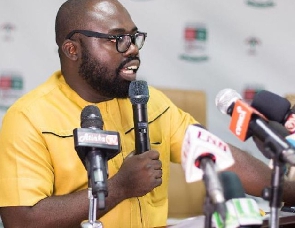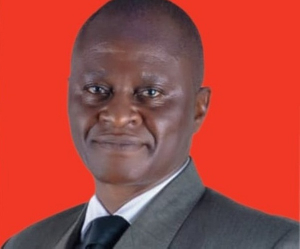Sunyani, May 1, GNA - Professor S.K.B Asante, an international consultant to the United Nations and the World bank on Wednesday urged Ghanaians to make history so as to leave an enviable legacy for future generations. Prof. Asante was speaking at the inauguration of Sunyani West, Tano North and Tano South Peer Review Mechanism Governing Council (APRM) Oversight Committees in Sunyani.
The consultant stressed: "If your family alone feels your impact you cannot be remembered for a long time to come but showing concern to the people around and influencing them positively with your services will be a great achievement that can be remembered forever". Prof. Asante asked the people to accept and take up their civil responsibilities to the country, adding, "Nobody can build the nation for Ghanaians, but with our own efforts and contributions we will enjoy the fruits of our labour". He urged all Ghanaians to get involved and contribute towards the success of APRM and urged the committee members to sacrifice and educate
the public about the Mechanism since it had come to stay for the benefit
of Africans. "APRM is an African self-monitoring programme that entails a country
to voluntarily accept to undertake an internal audit of its political, economic, corporate and social economic governance system by ordinary citizens after which an external audit is conducted by an independent panel from the African Union (AU)", Prof. Asante explained. A report prepared together with a Programme of Action enabled other Heads of State to peer review the affected country to encourage policies
and practices that foster good governance and development, he added. He emphasized that the APRM was not for the government but for all Ghanaians and advised the pubic not to politicize the programme since it
was meant to foster national dialogue and the participation and empowerment of citizens in national development. The international consultant stated that the programme would promote transparency, openness, accountability and democracy as well as enable countries to identify capacity gaps, weaknesses and deficiencies so that solutions could be provided for them. Mr. Samuel Codjoe, principal programme officer of APRM, who gave an overall assessment of the implementation process, said the programme had been very successful since its establishment in the country in March 2003 and the introduction of district oversight committees was to deepen civil society's engagement in the process. He said the 2007 annual progress report showed that the government with the introduction of the programme had created the enabling environment for the growth and development of the private sector through strengthening the regulatory environment.
General News of Thursday, 1 May 2008
Source: GNA
















